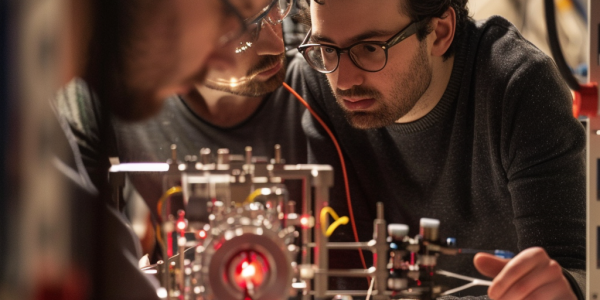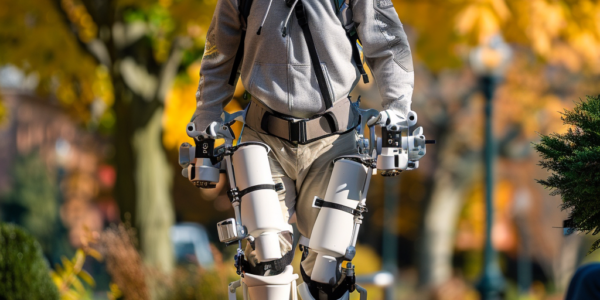Breakthrough in Quantum Computing with Microwave Circulator Device
Researchers at the University of Massachusetts Amherst have made a groundbreaking discovery in quantum computing with the development of a microwave circulator. This device allows precise control of nonreciprocity between qubits and microwave-resonant cavities, essential for quantum information processing. Their research, published in Science Advances, introduces a new theory that simplifies and enhances previous understandings of nonreciprocity, benefiting future studies in the field. Quantum computing, based on qubits in quantum superposition, offers enhanced computational power, while nonreciprocity opens up new possibilities for harnessing the full potential of the quantum realm.
Groundbreaking Robotic Hip Exoskeleton for Stroke Recovery
A recent study by the University of Massachusetts Amherst introduces a portable robotic hip exoskeleton designed to improve walking function in stroke survivors. With over 80% of stroke patients experiencing walking difficulties, this innovation holds promise in significantly enhancing their daily lives and overall quality of life. The research highlights the potential of the robotic hip exoskeleton to effectively train individuals to modify their walking asymmetry, offering a new avenue for stroke rehabilitation.
Researchers Propose New Method for Tracking Origins of CO2 Emissions from Streams, Rivers, and Lakes
University of Massachusetts Amherst researchers propose a new method for tracking CO2 emissions from streams, rivers, and lakes, addressing the challenge of accurately measuring and understanding the carbon dioxide released by inland waters. The study, published in Global Biogeochemical Cycles, reveals the impact of carbonate buffering on CO2 emissions, shedding light on the cryptic nature of its production and the difficulty in accounting for it in current climate models.



